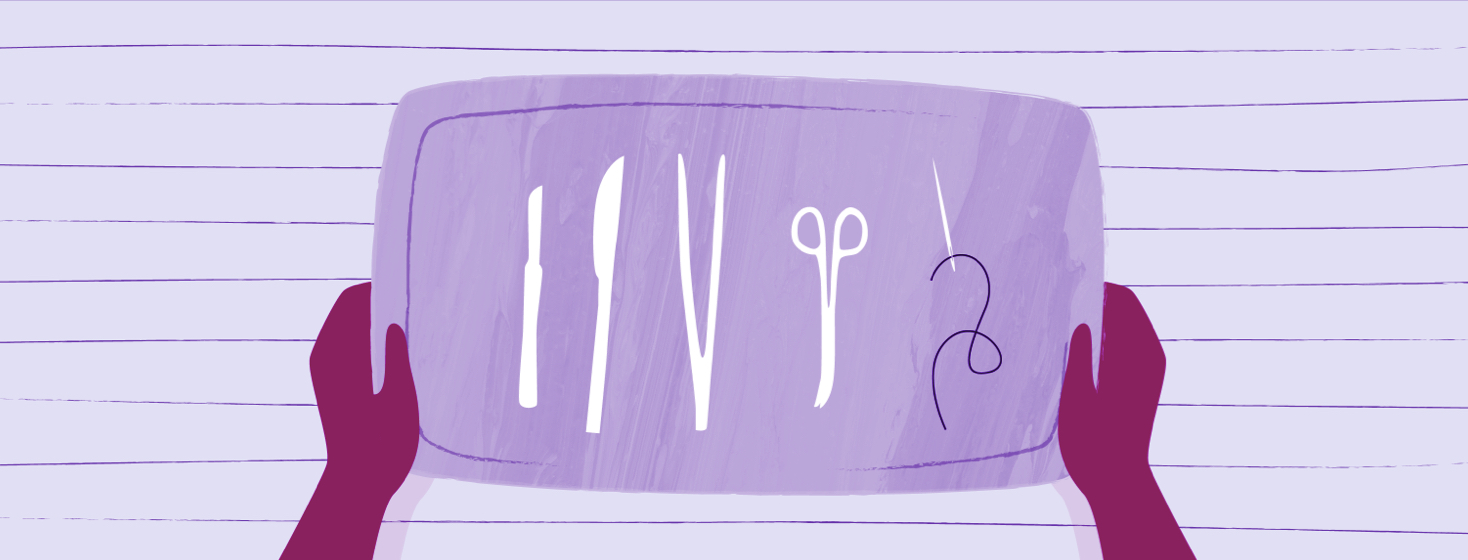5 Things I Learned From My First Surgery as an Autoimmune Patient
Have you had surgery before? Until a few weeks ago, my answer was simply that I had my wisdom teeth removed as a teenager. Sure, that was technically surgery, but it was worlds away from facing abdominal surgery as a mom with multiple medical conditions.
I was terrified of having gallbladder removal surgery – until I had a painful gallbladder attack. That experience took away all my hesitation. So I asked for the next available surgical slot about 2 weeks later and prepared.
I tried to resolve almost all my fears and limit potential complications by being prepared, but I had much to learn about having surgery as a lupus patient.
What I learned from my gallbladder removal surgery
1. Pausing a biologic can be awful
Many autoimmune patients use biological medications to control their disease and dread having to miss doses. Over the past year, I’ve had to hold my biologic for up to 10 days (but often closer to 2-5 days) due to preschool colds. But for surgery, my doctors told me to pause my biologic for 4 weeks!
Since I use this medication to keep my body from attacking itself, I worried about the consequences of going without it. I hoped that maybe my immune system wouldn't notice.
Nope. My lupus went to war. So much so that I had to take steroids for the week before surgery. Then, after surgery, I had to wait 1 week before using them again to minimize injection risk. Surgery is a known lupus flare trigger, and my flare began around 5 days post-op. I experienced joint pain at levels I forgot existed – ones that I hadn’t felt since my diagnosis 5 years ago. I’m ready to have my biologic back to help me function.
2. Great pre-op care does not guarantee great post-op care
In pre-op, I felt like the most important person around. There were lengthy conversations about my medications and health conditions. I was given swabs for my dry mouth, offered a fan, pain relief – nearly anything I wanted aside from food or water. I spoke to 2 anesthesiologists, 3 nurses, my surgeon, and the nurse anesthetist.
I asked for several accommodations and was met with hesitation. I thought my medical team was taking a "wait and see" approach and that we’d adjust the plan as needed post-op. That’s not what happened.
After surgery, I woke up during extubation screaming in pain. I sobbed on the way to the post-anesthesia care unit (PACU). The PACU didn’t know I was coming, was understaffed, and could not attend to me for nearly an hour. I cried silently as I could not speak up due to pain in my mouth and throat. My husband wasn’t there. No one came to update me.
I was in the PACU for nearly 3 hours and left feeling traumatized. I was discharged without adequate pain management or post-op care instructions, which led to another complication the next day. Now I know I should have asked questions about post-op care beforehand.
3. Advocating for yourself under emergent circumstances is hard
I had my first ambulance ride a little over 24 hours after surgery due to dangerously low blood pressure and blood oxygen levels. The paramedics urged me to return to the same hospital if my surgical team needed to care for me.
Feeling vulnerable and afraid, I insisted I would not return to the hospital that caused me so much distress (even though I wouldn’t be returning to the PACU). I asked them to take me to a different one, and thankfully they agreed without further pushback.
At the other hospital, I received excellent care. I learned that part of my lung had collapsed due to my shallow breathing from high pain levels. As hard as it was to advocate when I was in crisis, I’m grateful that I could do it.
4. You need a dedicated care person
My husband and I made a plan for my post-op care: he would take a week off work, and we would have rotating help from family and babysitters. However, I didn’t consider that my children, ages 9 months and 3.5 years, are in a high needs stage of life. My husband was so busy caring for them, even with help, that he didn’t have enough time for me.
He cared for me, but I always needed a little more than he was realistically capable of doing. I needed more food, water, monitoring, and help with basic physical tasks. In retrospect, I wish I had someone whose only job was caring for me during those first 3 days, which were more complicated than anticipated.
5. Recovering from surgery is a wild ride
I knew that I couldn’t plan every aspect of my recovery, but I did feel a little blindsided by the particular difficulties I experienced. For example, it didn’t occur to me that I couldn't lean against the sink to wash my hands without hurting my belly button incision. I didn’t expect the mouth and throat pain to be so intense that I’d barely be able to eat for days after my surgery.
I didn’t know how completely unnatural it would feel to be unable to pick up my kids (or anything over 10 lbs.) for 2 weeks. I didn’t know that truly being stuck in bed would make me irritable, even on bad flare days, I can usually get up briefly and do a few things.
I’m grateful that the surgery was uncomplicated, and I’m progressing towards normalcy. I’m glad to have learned these things and shared them, but I hope I never need to call on these lessons again.

Join the conversation